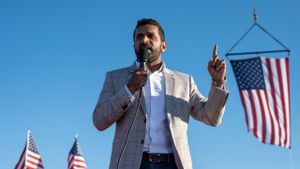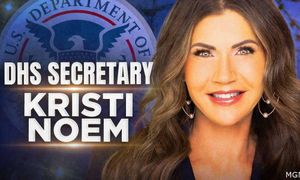Donald Trump, now serving his second nonconsecutive term as President of the United States, is gearing up for significant foreign policy engagements, starting with the anticipated meeting with Japanese Prime Minister Shigeru Ishiba next week. On Friday, Trump expressed his eagerness to meet with Ishiba, highlighting his respect for Japan, though he refrained from mentioning the prime minister by name. Instead, he reminisced about his relationship with former Prime Minister Shinzo Abe, stating, "What happened to him was so sad and one of the saddest days," referencing Abe’s tragic assassination during an election campaign speech.
Ishiba’s visit marks the first face-to-face summit between him and Trump since his inauguration. According to sources familiar with the arrangement, Ishiba is set to travel to the United States on Thursday for discussions aimed at reinforcing the bilateral alliance's deterrence and response capabilities, particularly against the backdrop of rising tensions stemming from North Korea's ballistic missile tests.
During his planned three-day trip, Ishiba plans to shed light on Japan's increasing defense expenditures and the significant contributions of Japanese companies to American job growth and economic stability. Japan’s status as the largest foreign direct investor in the United States for the past five years is also expected to feature prominently during the discussions.
This meeting with Ishiba is particularly noteworthy, being Trump's second foreign leader engagement since taking office on January 20. Just days before, Trump met with Israeli Prime Minister Benjamin Netanyahu to discuss mutual interests and cooperation, emphasizing his administration’s continued emphasis on diplomatic relations with key allies.
The diplomatic talks have also been set against the backdrop of increased Japanese military spending, which signals Tokyo's response to growing security concerns, particularly with China's increasing assertiveness in the Indo-Pacific region. Ishiba is anticipated to discuss Japan's defense strategies and collaboration with the United States and other key allies like the Philippines and South Korea to address these challenges.
Earlier this week, Japanese Foreign Minister Takeshi Iwaya held talks with U.S. Secretary of State Marco Rubio, wherein they agreed to uplift the bilateral relationship as part of the foreign policy framework immediately following Trump’s inauguration. Their discussions focused on advancing cooperation across various fronts, reinforcing mutual commitment to addressing shared security challenges.
The upcoming dialogue between Ishiba and Trump is proposed as both leaders seek to bolster the U.S.-Japan alliance at this pivotal time. The partnership is particularly important for countering threats from North Korea and managing the geopolitical dynamics involving China. Observers note the increasing importance of U.S.-Japan relations has become even more pronounced, especially with North Korea's continued military provocations.
With Ishiba's visit drawing closer, Trump's administration aims to clear potential hurdles to smooth the way for interaction at the highest levels, thereby reinvigorated Japan's investment presence, following issues such as the rejection of Nippon Steel Corp.'s acquisition of United States Steel Corp. last month. Trump’s administration has shown strong opposition to foreign corporate stakes, yet the Japanese have solidified their position through sustained investments across various sectors.
This meeting is anticipated to pave the way for constructive dialogue not just about defense and security, but also about economic collaboration, job creation, and broader international cooperation. Ishiba’s trip can be viewed as foundational to reinforce the bonds of the U.S.-Japan alliance and explore avenues for future strategic partnerships.
Observers will be watching closely to see how these discussions influence not only bilateral relations but also impact regional dynamics. Will this renewed engagement shift the balance of power or create new opportunities for collaboration amid rising geopolitical tensions?



